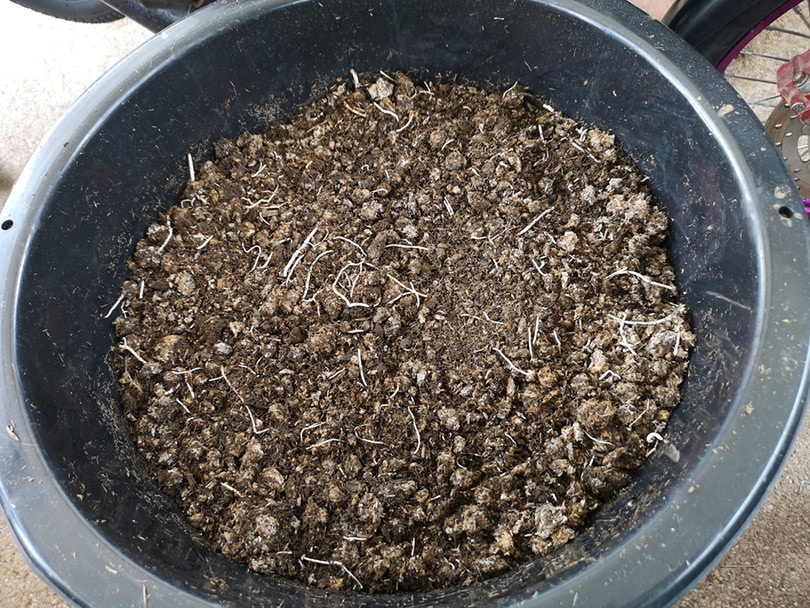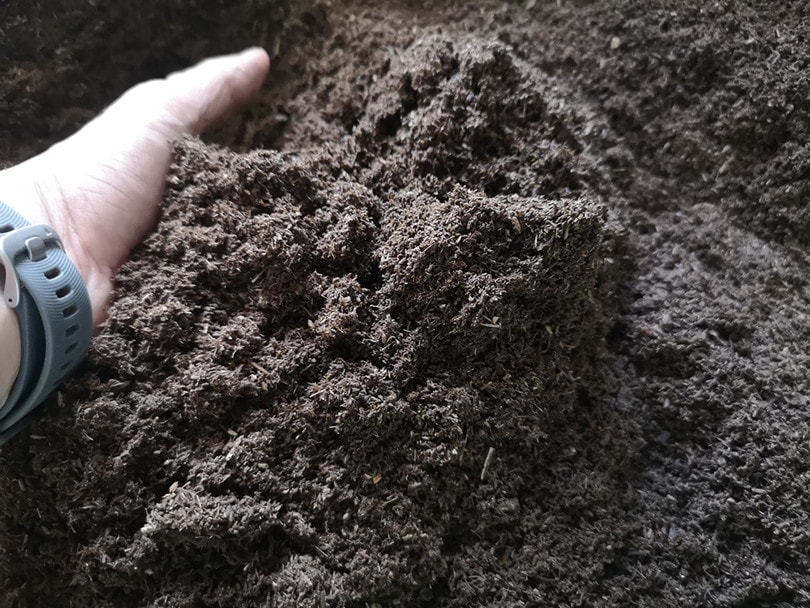Can You Put Meat in Compost? What You Need To Know!
-
Shea Cummings
- Last updated:

Meat is organic material. Therefore, it can technically be composted. However, it’s not an ideal candidate for composting, and it’s strongly recommended that you don’t compost it. That being said, if you put a high priority on composting everything possible, then there are some steps you can follow that will enable you to do some meat composting safely.
These tips are geared for the home composter. Commercial composting facilities exist that are specifically geared for composting things such as animal carcasses or blood. They do so in a safe way and create mulch that is used for commercial purposes like hay, tree farms, or forests. But these types of composting systems are not available to the general public.
Problems With Composting Meat
It’s confusing when you think about it because, as a general rule, if something is an organic material, it can be composted. But several problems lead to composting meat not being a recommended practice.
Because of how long meat takes to break down, it’s hard to avoid the smell of rotting meat. Typically, compost will not have a bad smell when done correctly. However, if you add meat, you’re asking for some nasty smells. Plus, smells that humans don’t like might attract visitors that you don’t want. Waking up to a compost pile that’s been destroyed by an animal won’t be a pleasant experience.
A destroyed pile is the least of your concerns because pests like rats or raccoons are attracted to the smell of rotting meat. The thing about critters like these is that they will often bring friends, and then they won’t be happy with just your compost pile. Eventually, they will start digging through your garbage and even causing damage to your home. Their waste poses a health concern as well, especially if you have pets or kids at home.
In addition to these problems, you’re running into potential contamination of the rest of your compost pile—especially if the meat scraps are uncooked. These scraps can carry pathogens such as E. coli or Salmonella, potentially making your compost pile unusable. And if these issues aren’t enough to deter you, keep in mind that adding meat will significantly increase the time it takes your pile to break down.

Safely Composting Meat
If you are not scared off by this point and are determined to compost meat, there are a few tips that will enable you to do it safely. As we mentioned above, some cities have special facilities. If your city does, they will often have places where you can drop off your meat scraps. You won’t necessarily reap the benefits of this compost, but it will keep the scraps out of the landfill, and you’ll be helping the environment.
Another option is a unique self-contained composting system specifically designed for meat scraps. There are small countertop systems that add heat and oxygen manually to increase composting speed drastically. These systems are safe for most kitchen scraps, excluding large bones.
If you are set on using a traditional composting bin in your backyard, there are a few things to keep in mind when putting meat scraps in. First off, ensure you are doing a hot compost pile. This is the only way to kill the pathogens that are present. In addition to keeping the temperature high, mix the pile regularly to make sure everything breaks down. Lastly, keep meat scraps to a minimum. The overall percentage of meat should be small compared to the rest of the material in the compost pile.
Related Read: Can You Compost Dog Poop? What You Need To Know
FAQ
How long does meat take to break down?
This depends on how large the meat scraps are. Composting meat can take anywhere from one month to a year. If you are composting meat, it’s important to cut the scraps as small as possible to aid in a quick breakdown.
Is raw or cooked meat better for compost?
Cooked meat tends to cause less of an odor. However, it also breaks down slower than raw meat will. So, this depends on how proficient you are with composting. Still, both can be composted successfully with the right care.
Related Read: Can You Compost Weeds? What You Need To Know!
 Conclusion
Conclusion
Composting meat is not for the casual composter. There are too many things that can go wrong. If you’re not familiar with the best practices of creating a compost pile that can remain around 165° F, there is a good chance that the pile will be ruined. Difficulty aside, some municipalities have banned animal products from being composted because this can be more harmful than helpful to the environment.
Sources
Featured Image Credit: Thiti Wongluang, Shutterstock
Contents
